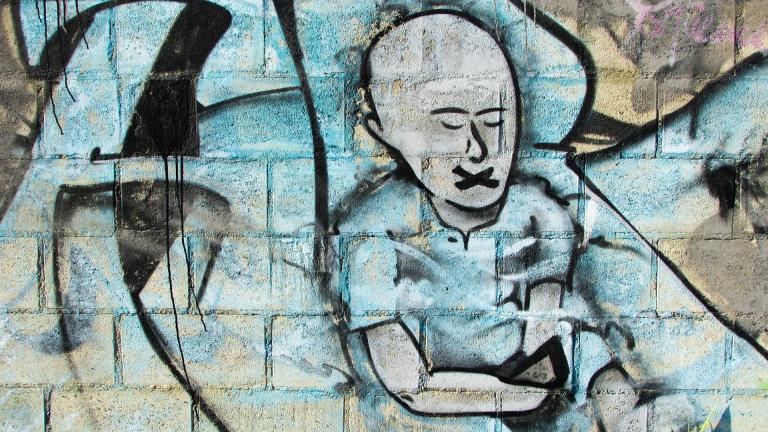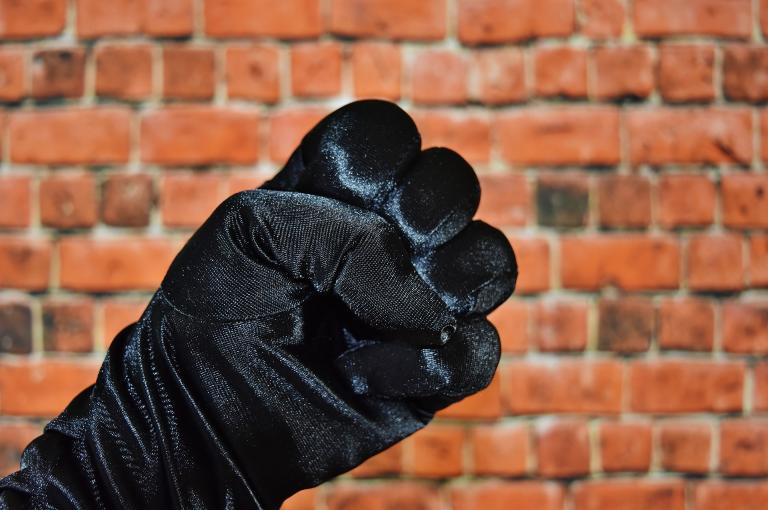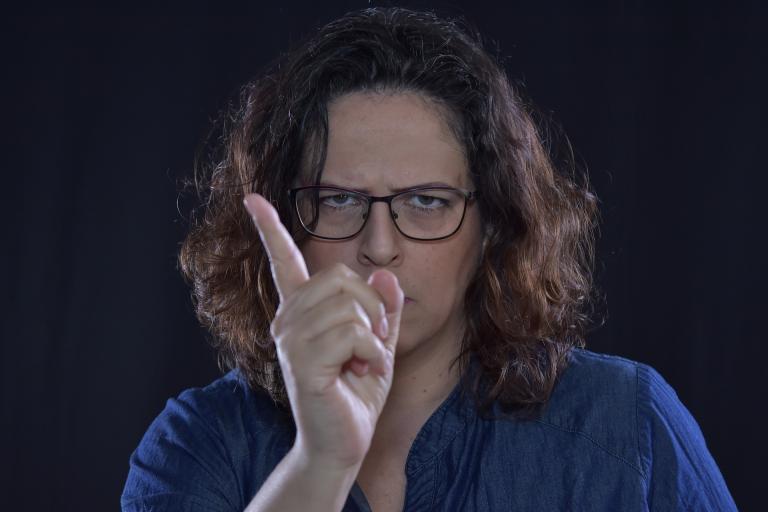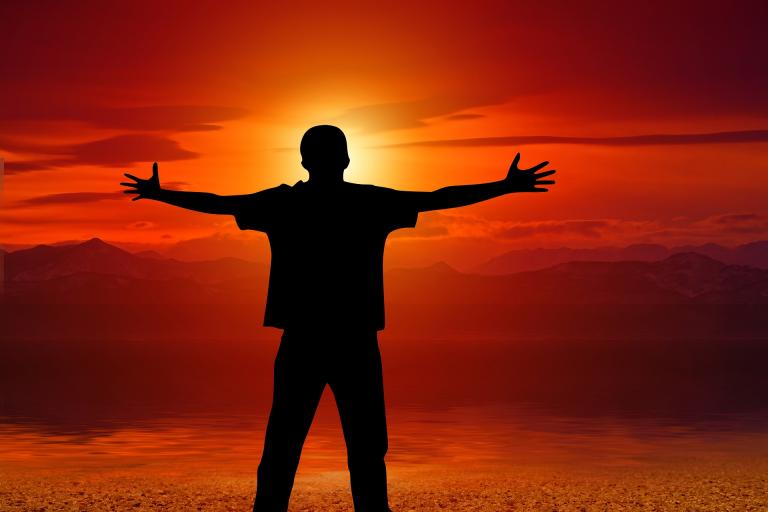The Origins of “Social Justice Warrior”
The term “social justice warrior” used to be a good one.
In 2015, Abby Ohlheiser, writing for The Washington Post, discussed how prior to the Gamergate scenario in 2014, people wrote about “social justice warriors” in positive terms; the phrase was a way of celebrating the work of individuals who were fierce supporters of social justice – that is, gender equality, inclusion and equity, voter rights, and other rightly celebrated progressive causes.[1] In 1992, an obituary for Baptist minister and civil rights activist Rev. James Obey was titled “social justice warrior dies.” Later, in 2007, former lawyer and then-filmmaker Ana Kokkinos shared that, “what attracted me to law at that age was the idea of being a social justice warrior.”

Ohlheiser and others have gone on to talk about how, following Gamergate in 2014, the term “Social Justice Warrior” (or “SJW” for short) was weaponized as a way to silence women, minorities, and others advocating for exactly what their name would suggest – social justice. The term was co-opted by racist, misogynist, and otherwise far-right ideologues and internet trolls who sought to harass, doxx, and further marginalize leftist ideals around equity, inclusion, and human rights, and it has continued to be used that way to this day – even in spaces, and by people, who might otherwise seem to actually support some leftist values.
This past weekend, I overheard people at a Pagan convention express a desire to do physical harm to (fellow) Pagans who they identified as social justice warriors. One man said he wanted to “shoot them.”
SJW’s at ConVocation
Many, though not all, of the people I either read or heard attempting to quash a discussion about diversity, inclusion, and cultural appropriation were white; of the ones I heard expressing hatred or wishing violence on “SJW’s,” all were either middle-aged or older, white, and part of a local midwestern community. By the end of the weekend, community members – including women of color in the community – had begun simply posting memes mocking the attempts at discussing inclusion and diversity within an overwhelmingly white pagan event.

For my part, I tried to participate in the discussion productively, and until I overheard people threatening violence against me and others my last night there, I was genuinely enthusiastic to begin volunteering and to help with outreach. This is despite being told, over and over, that it was simply the responsibility of more Black, Indigenous, People of Color to just submit workshops themselves if representation mattered that much. There was nothing that could be done if people didn’t start submitting, and – as commenter after commenter noted – “we don’t PAY presenters.” One chastised me by saying, “we don’t recruit, we welcome.”
There were, by the end, microaggressions in all directions. Racially insensitive language was used to explain how people were harassing the initial poster; that poster themselves used sexist, misogynist language to dismiss a woman of color in the community who disagreed with them, ending a comment with “baybeeee.” One commenter stressed that it was important to be thankful to white people, because they “freed the slaves” (they were, mercifully, quickly shut down). When a black woman noted that it was hubris to suggest that everyone knows about ConVocation and that she and other black Pagans don’t feel welcome in the space, she was also quickly shut down.
In what could have been a powerful opportunity for dialogue and discussion, I saw, over a few days both online and off, some of the very worst (short of AFA-brand “folkish” white nationalism) of Pagan community. I had gone in expecting to see the best.

Theorizing Race & Organizations
I’ve been writing for days since the event, trying to find some sort of philosophical, theological, or theoretical way to explain what I saw happening this weekend. In my years of work writing about gender, race, sexual orientation and – yes – social justice, I’ve never quite come across a single model that could explain the complexly layered storm that emerged over just a few hours at my first (and, in light of the threats of violence, possibly last) ConVocation. I reached out to some of the smartest folx I know in search for help with terminology, and my friend, Dr. Aisha McGriff, ended up pointing me toward Victor Ray’s “A Theory of Racialized Organizations.” His work pretty closely encapsulates what, at least to outsiders, may have been pushing the dialogue and dynamics of that discussion, at least from the anti-SJW perspective. It’s a brilliant article, and the actual piece has so much more to it than I could summarize briefly here, but part of the gist is this bridge between organizational theory and critical race/racial formation theory: organizations both help construct/narrate our concepts of race, and themselves become increasingly racialized as politics of race and identity are negotiated and racism and whiteness become enshrined as cornerstones and currency of organizations.[2]
This is true, whether we care to admit it or not, in pagan spaces and organizations, both ConVocation and many (I’d argue pretty much all) other pagan organizations. It doesn’t mean all pagan organizations enshrine whiteness or always engage in white supremacist practices; it does mean that in all pagan organizations, race is a central organizing force, whether that is acknowledged by organizers or not.

So how does this all come back to ConVocation and SJW’s?
The key, for me, is precisely that difference – whether that is acknowledged by organizers or not. Over and over, the people shutting down discussion insisted that there was no racism, that they didn’t have/it wasn’t about white privilege, that it’s just not their fault if BIPOC don’t apply to teach workshops. Folx who are familiar with critical race theory know that the first of these assertions is, for white people, wrong – you, I, and we are racist. It’s a fact of our white supremacist society and our history of benefitting from unearned white privilege, a biproduct of living in a society that, over and over and over in literally every form of media, validates and praises whiteness and sets it up as the default. Can you be a white person who also seeks to undo this system, who works toward creating anti-racist spaces and commits to anti-racist activism? Absolutely – this is a major component of social justice activism, and yep – something that those SJW’s take seriously.
I’m a white person – and so I’m racist, as are all white people currently alive in the United States (this is a well-documented concept, and no – being queer, trans, poor or disabled don’t erase racism or white privilege).[3] But I’m also passionately anti-racist, and working constantly to challenge my biases, to recognize when I’ve microaggressed others, to educate myself about my privilege and ways to be a better white person. That’s part and parcel of both my politics, and my spirituality and practice. As a people who advocate for religious liberty, environmental justice, and (ostensibly) queer inclusion, it shouldn’t be optional for pagans to be anti-racist, or for us to demand more, more, more work on inclusion (whether racial, immigrant, queer and trans, disabled, or otherwise). You can’t, for the record, be racist against white people – prejudiced, sure, even bigoted, but not racist.[4]

At ConVocation, I saw virulent resistance to SJW’s, and in that, a resistance to what SJW’s represent – social change, inclusion, feminism, bodily autonomy and acceptance, and yes – anti-racism. When you establish yourself as in opposition to SJW’s, you’re not just opposing a younger – for SJW’s, whether self-identified or identified with the term as an insult, are often Millennials or Gen Z – but you are opposing all those ideals that, as Pagans and Witches we should be front and center in supporting. I’m at the older end of millennials, and I’ve begrudgingly come to celebrate that, yep – it’s the time for youth to lead the way, and they are doing just that. It is why you see younger generations of witches and pagans congregating, not just around spiritual practices, but around issues of social justice. As much as I’m elated to see Gen Xers (and, occasionally, Boomers) sometimes engaging passionately with these issues (I’d point to Laura Tempest Zakroff, Michael Hughes, and a few others who are doing brilliant work weaving together their spiritual practice with their politics), I’m also increasingly recognizing that these older generations are often the first to dismiss “SJW’s” as uninformed children.
We’re not. We just are/are hearing from voices that aren’t represented much in established Pagan spaces (because of either an inability to afford to go, a lack of awareness about the space/event, or just not wanting to deal with the overwhelming whiteness/straightness/cisness and cultural appropriation that dominate these spaces).
Calling All Pagan Social Justice Warriors
So how can we move forward productively, joyfully, with our Gods, Goddesses, and Goddexxes supporting us, with our craft and our communities? I can think of no better way than opening our communities to social justice warriors of all backgrounds, to pausing in our dismissal of these practices and ideologies and considering that the way it has been done may not be the way it must be done going forward. Paganism and witchcraft are growing rapidly within the U.S., and these new witches and pagans are often young, queer, bipoc and immigrant, disabled and fat, and yes – many of them are SJW’s. They bring a new passion, a clarity and perspective, and a powerful commitment, not only to learning their craft, but to helping others learn how to be more just, less racist, more inclusive. We already have them among us, sometimes (shhh!) even celebrating their work – we see it in gender inclusion rituals, in workshops on ethical witchcraft or in enthusiastic revulsion at the trend of so-called folkish Asatru practitioners, who most of us can see as thinly-veiled neo-Nazis and white nationalists.

The solution is not to shore up and hope SJW’s go away – that way lies only decay and decreasing relevance. Instead, it’s time to throw the doors open wide, welcome our Social Justice Warrior witches, pagans, brujxs and druids, and learn everything they’re willing to share with us – and in turn, share our deep knowledge with them. It’s time to talk about sliding scales for conference attendance, time to talk about recruiting from the diversity of teachers and leaders to speak at, lead rituals at, and facilitate workshops at our conferences, festivals, pride days and local shops, to support BIPOC-owned businesses, authors, and teachers with not just our words, but our time and our money. It’s time to end women’s-only circles that don’t explicitly welcome trans women. And in many instances, it’s time for white pagans and witches to invite new leadership and to step back and allow new ideas, new passions to reinvigorate our work and our communities.
It may be awkward, but it will require us to seek input not just from the people already coming to our gatherings, but – and maybe especially – those who don’t, or won’t. It means beginning to take seriously a generation that is often outspoken on social media, that is building community in ways and numbers that older traditions of witchcraft and pagan organizing haven’t ever really done. And, importantly, it means that if we want to stay relevant, we need to begin to welcome pagan social justice warriors, to truly listen to what they’re saying and why they’re saying it, and to critically examine the processes by which we’ve always operated, and the ways those processes have – because they have indeed – continued to marginalize already marginalized populations, and to exclude and erase those whose voices could revolutionize our practices and communities for the better. I can’t speak for the entire U.S. Pagan community, but I can hope – that we will become more invested in social justice, in equity, in progress and inclusion, and that we can move toward a place where we all, every one of us, not only welcome Social Justice Warriors into our communities and our lives, but begin to think of ourselves as social justice warriors.
We’ll all be better off for it.
[1] Ohlheiser, A. (2015, October 7). Why ‘social justice warrior,’ a Gamergate insult, is now a dictionary entry.
[2] Ray, V. (2019). A Theory of Racialized Organizations. American Sociological Review, 84(1), 26–53. doi: 10.1177/0003122418822335
[3] Guthrie, E. (2017, October 2). Are all white people racist?
[4] Drayton, T. (2018, August 3). You can’t be racist against white people.

















